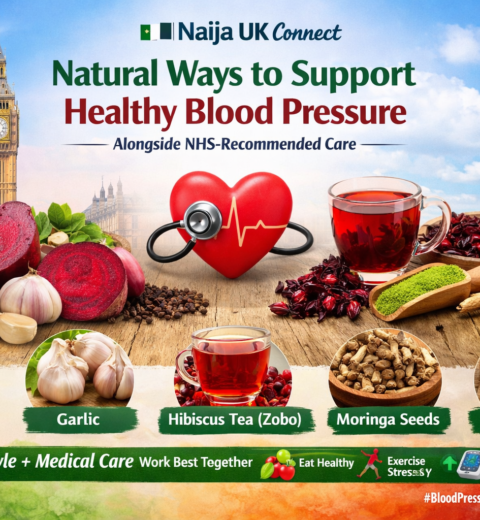Asthma is one of the most common long-term conditions affecting children in the UK — and it’s particularly important that Nigerian families understand how to manage it effectively.
Asthma can be distressing, but with the right support and knowledge, your child can live a healthy, active life. Here’s a practical refresher, rooted in NHS guidance, to help you stay on top of it.
🚨 Recognise the Signs Early
Asthma symptoms can vary, but NHS guidance highlights these common signs in children:
- Wheezing (especially when breathing out)
- A persistent dry cough (often worse at night or after activity)
- Shortness of breath
- Chest tightness
- Tugging in the skin around the ribs or neck when breathing
If your child avoids playing or running around, it could be a sign they’re having trouble breathing — and not just “being lazy.”
🔍 Know the Triggers
Children react to different triggers. Common ones include:
- Colds and respiratory infections, including COVID-19 (vaccination is advised)
- Allergens like pollen (spring/fall), dust mites, mold, and pets
- Cold air or sudden weather changes
- Exercise (especially if asthma is uncontrolled)
- Stress or strong emotions
➡️ If your child is a new arrival from Nigeria, UK pollen or cold weather may be unfamiliar triggers. It’s worth noting and discussing these with your GP.
💊 Understand the Medications
The NHS outlines these main treatments:
- Relievers (like salbutamol/inhalers) – used during an asthma attack or when symptoms arise
- Preventers (inhaled steroids) – taken daily to reduce inflammation and prevent attacks
- Combination inhalers – for children with more persistent symptoms
- Oral steroids – for more serious flare-ups
- Allergy medicines – if hay fever or eczema is also present
Always use a spacer with inhalers unless advised otherwise. This ensures the medicine reaches the lungs.
📋 Have an Asthma Action Plan
Ask your GP or asthma nurse for a written Asthma Action Plan, which should include:
- Daily medications and doses
- What to do if symptoms worsen
- When to seek emergency care
You can download a free NHS Asthma Action Plan template here.
🩺 Stay Connected With Your GP or Asthma Nurse
Your child needs regular asthma reviews at least once a year — more often if symptoms are not well controlled. At these appointments, you can:
- Update their action plan
- Check inhaler technique
- Adjust treatment as needed
➡️ If you’re new to the UK, registering with a GP is essential to access ongoing asthma support and prescriptions.
✅ Final Word for Our Naija Families in the UK
Asthma is not a death sentence. With the right steps, your child can thrive. Let’s not dismiss breathlessness as just “tiredness” or “weather wahala.” Take it seriously. Equip yourself with knowledge, work with the NHS, and advocate for your child’s health.
📍Brought to you by Dr. Ogechi Eze for Naija UK Connect — keeping Nigerian families in the UK informed and empowered.
Join Our WhatsApp Channel
Stay updated on the latest UK news, including education, health, job openings, and more for those living in the UK!
Join here: Naija UK Channel
Also, follow us on our social media channels for the latest updates and discussions:
- Twitter: @NaijaUKConnect
- Facebook: Naija UK Connect
- Instagram: @naijaukconnect




